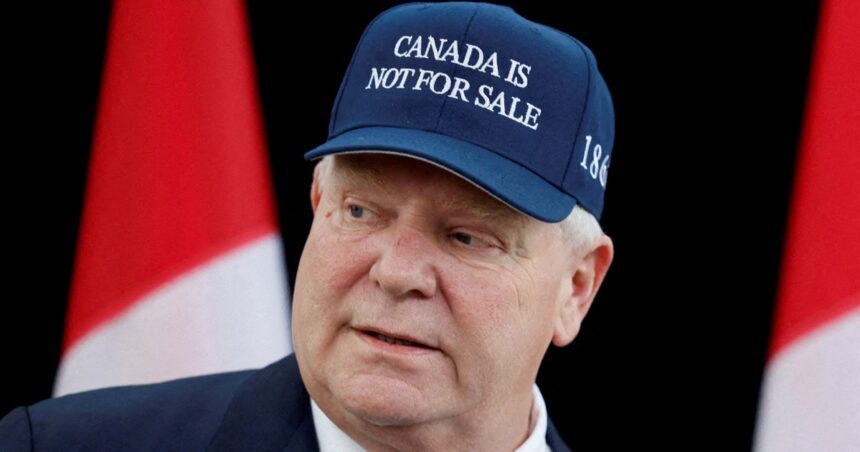Canada’s Ontario province has once again chosen Premier Doug Ford’s ruling conservative party in an election that focused heavily on trade tensions escalated by United States President Donald Trump.
Ford and his Progressive Conservative Party (PC Party) secured their third consecutive legislative majority on Thursday after seeking the “largest mandate in Ontario history” to safeguard the economy of Canada’s largest province from Trump’s tariffs.
The PC Party has won at least 74 seats in the 124-member Legislative Assembly of Ontario and was leading in seven other districts as of Thursday night, according to the Canadian Broadcasting Corporation.
“We will ensure we protect the people of Ontario, their families, jobs, and businesses,” Ford, 60, told CTV News after his victory. “I will vigorously oppose Donald Trump. I guarantee that.”
Ford, who frequently wore a “Canada is Not for Sale” hat and presented himself as Captain Canada throughout his election campaign, decided to hold the vote more than a year early, arguing that he needed a stronger mandate to navigate potential economic turmoil under Trump.
“This will be a battle for the next four years,” Ford said last month when he called for the snap election. “I want to make sure I have a strong mandate to outlast President Trump.”
During his campaign, Ford traveled to Washington, DC twice and made several appearances on US networks like Fox News and CNN to advocate against the tariffs and position himself as a spokesperson for all of Canada.
Critics of Ford questioned the timing of his election decision and noted that it is primarily Ottawa’s responsibility to negotiate with Trump’s administration.
Earlier this week, Ford stated that he would impose a tariff on electricity sent from the province to the US if Trump moved forward with his trade actions and then “wait to see what happens from there.”
Ontario, which encompasses Toronto and is home to approximately 40% of Canada’s population of around 40 million people, heavily relies on trade with the US.
In 2023, over 80% of Ontario’s exports went to the US, making it the province most dependent on American consumers after New Brunswick and Alberta, based on an analysis by Scotiabank.
Ontario’s auto industry, which serves Honda, Toyota, Ford, General Motors, and Stellantis, was the second-largest producer globally after the US state of Michigan in 2022, according to Invest Ontario.
Moreover, the province boasts one of the largest tech industries in North America, with approximately 420,000 employees and 22,000 businesses engaged in the sector, according to the investment agency.
Trump, who had agreed to a 30-day pause on his threatened tariffs on Canada and Mexico pending talks on border security, announced on Thursday that the 25% levies would come into effect on March 4.
On Truth Social, Trump, who has also suggested that the US could assimilate Canada as its 51st state, justified his decision by stating that illicit drugs like fentanyl were still crossing the border at “unacceptable levels.”










